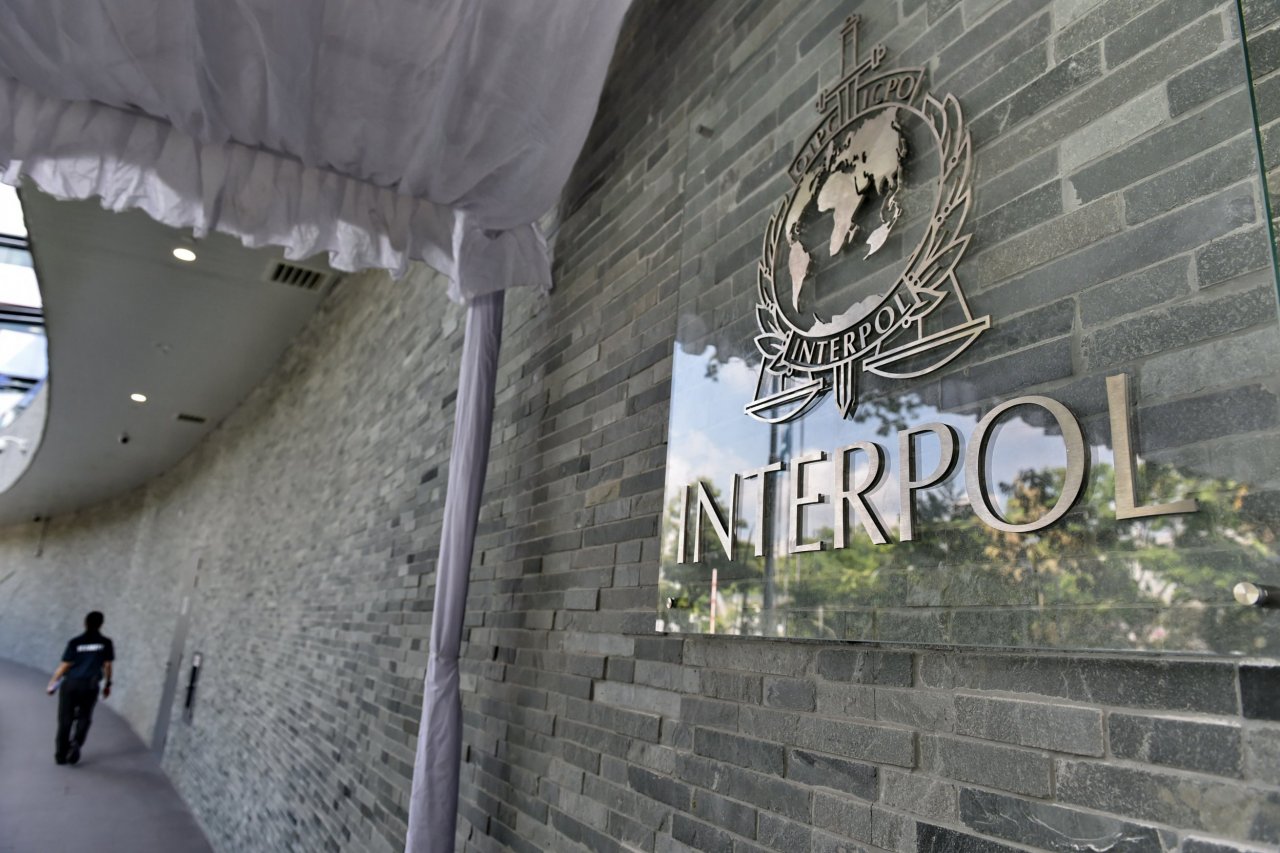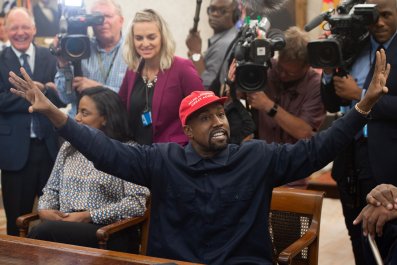The free world breathed a collective sigh of relief at the appointment of South Korean Kim Jong-yang as the new Interpol chief today, in an upset for Putin's preferred candidate, Alexander Prokopchuk.
The significance of this post has been underestimated in Western capitals until recently, but just as Russia's manipulation of Facebook appears to have damaged US democracy, its exploitation of the world's largest police cooperation forum may be about to hit the EU - if Jong-yang fails to reign in the abuse.
Russian expansionism would be impossible if it wasn't for Putin's influence over key international institutions. His use of Russia's UN Security Council veto to manipulate the Syrian war is infamous. And his use of the OPCW - the UN chemical weapons watchdog - in his propaganda around gas attacks in the same war is another example.
But the organization Putin has been using for policing dissent globally, and persecuting enemies wherever they are, is Interpol.
Interpol is so significant to Putin that he appears to have groomed one of his most trusted generals, Alexander Prokopchuk, to take over the organisation at its annual summit in Dubai this week. And although he lost out in the leadership election, Prokopchuk will remain in Interpol's senior management.
Since Propokchuk became a Russian appointee to Interpol in 2011, there was an uptick in Russia's use of Red Notices - the so-called "International Arrest Warrants" that make an individual liable to arrest in any Interpol member state around the world. Sometimes the targets were political dissidents or environmental activists. And sometimes they were as innocuous as the chairman of a Hungarian company that was unlucky enough to beat pro-Kremlin energy giant Gazprom to a deal.
Interpol's Red Notices can do serious damage in the wrong hands. Any one of Interpol's 194 member states can instigate one. There is no third-party oversight, no checks and balances, and no external authority - Interpol is self-governing.
Only 3 percent of Red Notices are thoroughly reviewed before being carried out. That is fine, as long as states play by the rules. But Interpol has been used as a political tool for some time now. And unless Jong-yang can introduce the kind of governance such a powerful and opaque organisation needs to function properly, it will unfortunately be business as usual.
The most recent (and arguably important) example is Zsolt Hernadi, a Hungarian economist who is currently chairman of the EU-focused energy group Magyar OLaj- és Gázipari Részvénytársaság — The Hungarian Oil and Gas Public Limited Company, or MOL. How Interpol have flip-flopped over his case would be comical, if it did not exemplify this aspect of Russian strategic expansion into the EU.
Hernadi was issued with a Red Notice on bribery charges back in 2013. In what seemed like vindication, he was removed from the red list in 2016. In 2017, all corruption allegations against him were dismissed after the UN's arbitration commission, UNCITRAL, assessed the facts and threw out the case, concluding there was no evidence of corruption against Hernadi.
But, just this week, Hernadi, was back on the Interpol red list again – on exactly the same charges the agency seems to have dropped against him in 2016 and that he was acquitted of by the UN's highest trade law authority.
To make sense of this paradox, one has to look at the EU's energy security - a sector which, if it were to fall under the control of the Kremlin, would make it much harder for European courts and diplomats to sanction Putin and his allies.
When Hernadi's MOL beat Russian Gazprom and Rosneft to an investment in Croatia's biggest energy company (INA) in 2009, this thwarted Putin's vision of establishing Russia's most powerful energy presence in an EU country. Instead, Russian hopes hinged on Croatia reversing their agreement with MOL, which would give Russian companies an opening to acquire MOL's stake instead. With MOL reluctant to sell its stake back to Croatia, the other option was to try and nullify the entire the entire agreement by claiming it was won on the back of bribery. In an intriguing unfolding of events, Croatia seem to have warmed to Russian advances, stating they wish to reclaim the shares they sold to MOL and being open to developing a new strategic partnership for their country's biggest energy company.
Since the troubles started, Gazprom's Chairman Alexei Miller visited Croatia, Putin personally decorated the Mayor of Zagreb, and the Kremlin's ambassador to Croatia proudly boasted that "Russia can do more for Croatia than the US and the EU combined".
Meanwhile, the Red Notice makes it dangerous for Hernadi to leave Hungary. This is mafia behaviour, rubber-stamped by Interpol.
The message is clear: the Balkans, and Eastern Europe in general, is Russia's backyard. Especially when it comes to energy.
It is a matter of time before persecution of investors like Mr Hernadi does lasting damage to the EU brand - why risk investing, or even doing business there, when it may lead to years of absurd accusations through Russia's Interpol desk?
Regardless of who is now in the top job, if Interpol continues to do Putin's bidding for him fully-fledged democracies should consider suspending their membership of the organisation. Or perhaps Russia should be pressured to leave, similar to when the G8 became the G7.
That may sound drastic, but Russia using an international law enforcement body to launch a silent coup against the EU's energy security is far, far worse. It remains to be seen if Kim Jong-yang has the commitment to reform the system, before it implodes.
Dr Kamran Bokhari is a Washington-based national security and foreign policy specialist with the University of Ottawa's Professional Development Institute and tweets at @KamranBokhari.
The views expressed in this article are the author's own.













